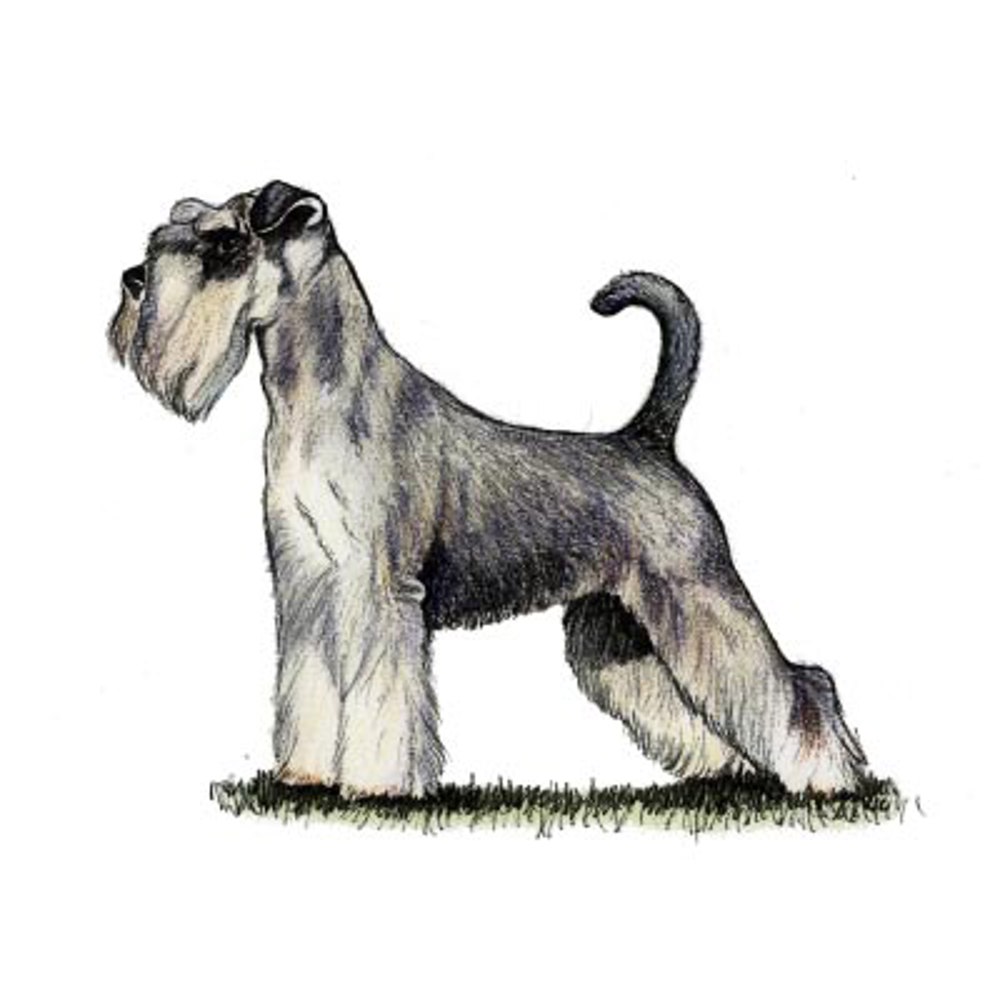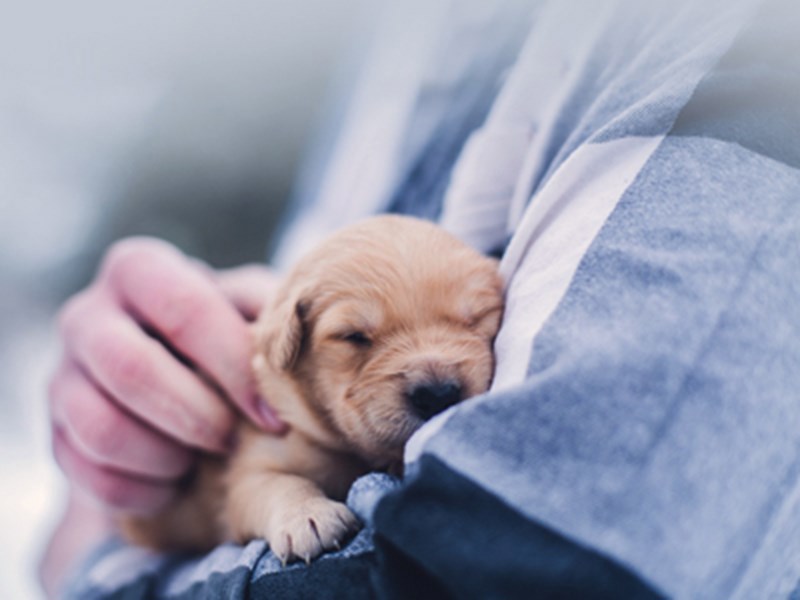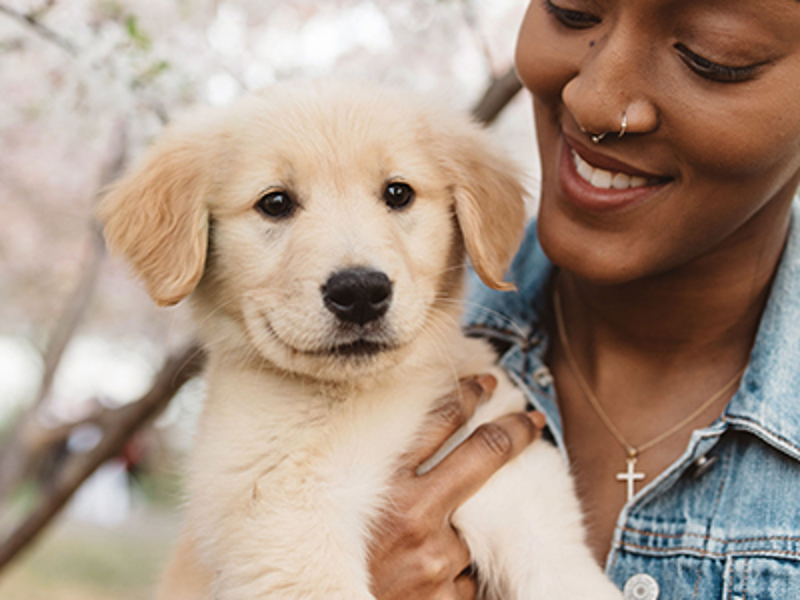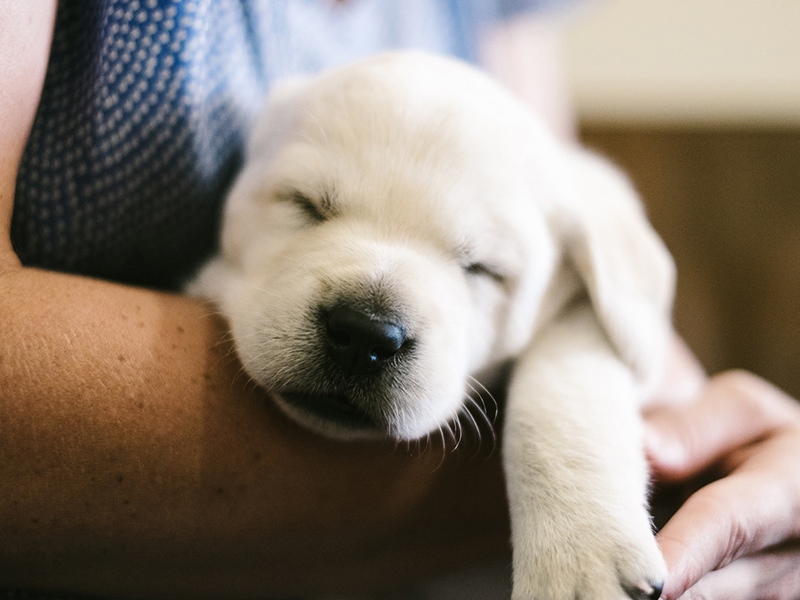
Miniature Schnauzer
Breed characteristics
- Size
- Small
- Exercise
- Up to 1 hour per day
- Size of home
- Flat/ Apartment
- Grooming
- More than once a week
- Coat length
- Medium
- Sheds
- No
- Lifespan
- Over 10 years
- Vulnerable native breed
- No
- Town or country
- Either
- Size of garden
- Small/ medium garden
About this breed
The original Schnauzer has been known in Germany from at least the 14th Century. It is thought that the miniaturisation was brought about by the infusion of Affenpinscher blood. The miniature variety was first officially recorded in 1888. Despite the reduction of size, there is no reduction in spirit – and they are hugely popular as companion dogs.
Images for this breed
The Utility breed group
This group consists of miscellaneous breeds of dog mainly of a non-sporting origin, including the Bulldog, Dalmatian, Akita and Poodle. The name ‘Utility’ essentially means fitness for a purpose and this group consists of an extremely mixed and varied bunch, most breeds having been selectively bred to perform a specific function not included in the sporting and working categories. Some of the breeds listed in the group are the oldest documented breeds of dog in the world.
Colour Watch
Category 1: Breeds with 0 to 2% registered NBS colours
Breed Standard colours
Breed standard colour means that the colour is accepted within the breed standard and is a traditional and well-known colour in this breed.
Breed standard colours in this breed include:
- Black
- Black & Silver
- Pepper & Salt
- White
Non-breed-standard colours
- (NBS) Chocolate
- (NBS) Chocolate & Liver
- (NBS) Chocolate & Pepper
- (NBS) Chocolate & Tan
- (NBS) Chocolate & Wheaten
- (NBS) Chocolate & White
- (NBS) Liver & Tan
- (NBS) Liver
- (NBS) Tan & White
- (NBS) Parti Black & Silver
- (NBS) Parti Black & White
- (NBS) Parti Chocolate Pepper
- (NBS) Parti Chocolate & Tan
- (NBS) Parti Liver
- (NBS) Parti Pepper & Salt
- (NBS) Parti White & Black
- (NBS) Parti White & Chocolate
Non-breed-standard colour means that the colour is not accepted within the breed standard and whilst some dogs within the breed may be this colour, it is advised to only select a dog that fits within the breed standards for all points.
Colour is only one consideration when picking a breed or individual dog. Health and temperament should always be a priority over colour.
Other colour/s
'Other' means you consider your puppy to be a colour not currently known within the breed and one that does not appear on either the breed standard or non-breed-standard list. In this instance you would be directed through our registration process to contact a breed club and/or council to support you on identifying and correctly listing the new colour.
Health
Whether you’re thinking of buying a puppy, or breeding from your dog, it’s essential that you know what health issues may be found in your breed. To tackle these issues we advise that breeders use DNA tests, screening schemes and inbreeding coefficient calculators to help breed the healthiest dogs possible.
More about health
Priority health schemes and tests
The Kennel Club's Assured Breeders must use the following (or equivalent) schemes, tests and advice. All other breeders are strongly advised to also use these.
- Eye screening scheme (BVA/KC/ISDS)
- DNA test - MAC (find a list of tested dogs)
Important health schemes and tests
We strongly recommend that all breeders, both assured breeders (ABs) and non ABs, use the following (or equivalent) schemes, tests and advice.
- Litter screening for eye disease
- Check inbreeding calculators
Find out about a particular dog's results
Please visit our Health Test Results Finder to discover the DNA or screening scheme test results for any dog on The Kennel Club's Breed Register.
You can also view the inbreeding coefficient calculation for a puppy's parents, or for a dog you're thinking of breeding from.
Have any questions about health in your breed?
If you have any concerns about a particular health condition in your breed then you may wish to speak to your vet or you could contact your breed health co-ordinator.
Breed health co-ordinators are individuals working on behalf of breed clubs and councils who are advocates for the health and welfare of their chosen breed. They acts as a spokesperson on matters of health and will collaborate with The Kennel Club on any health concerns the breed may have.
To contact your breed health co-ordinator please email
The Breed Health and Conservation Plans
Our breed health and conservations plans (BHCPs) use evidence and data to help us understand the health issues found in each pedigree dog breed. These plans help breeders and owners identify health and welfare problems and use information, health tests and health schemes to avoid passing on those problems to future puppies. They also support and provide breeders with tools and specialist expertise to help manage genetic diversity, understand the impacts of close breeding, and find the best ways to preserve the population of their breed.
Working together for the breed
We’ve worked with breed clubs and breed representatives to gather all available evidence to help us determine the priority concerns for the breed and decide how we can work together to manage and reduce these problems.
Breed priorities
The current key priorities for the breed are:
- Cancers
- Hereditary eye conditions
- Identify/ publicise available DNA tests for conditions known to occur in the breed
- Mycobacterium avium complex (MAC)
- Periodontal disease
- Welfare / behavioural issues
How we plan to make improvements
We’ve agreed the following list of actions with the breed clubs to improve the health of the breed. Both parties are committed to working on these areas and will review these on a regular basis to ensure the actions remain focussed and relevant to the breed’s health.
Breed Club actions include:
- The breed clubs to investigate other breed health surveys and methods through which they collect information, specifically with regard to breakdown of cancers, recording of bodyweight, and behaviour – IN PROGRESS
- The breed clubs to investigate how they can improve on advice to owners with regard to dental care
- The breed clubs to consider advice and guidance to assist owners and breeders with regard to behavioural issues in the breed
- The breed clubs to put forward proposals for the recognition of available and applicable DNA tests, to allow for recording of results
Our actions include:
- To establish the allele frequency of mycobacterium avium complex (MAC) in the breed
- To establish the proportion of puppies born that are hereditarily clear – COMPLETE (this action was completed in 2021 and will be routinely added in the next Breed Health and Conservation Plan updates)
- Ourselves and breed clubs to look at categorisation of undesirable behaviours where relevant to welfare and health impact
- To collaborate with the breed in developing a mortality reporting database, which can be posted on the Breed Information Centre/ breed club websites – IN PROGRESS
- To repeat the population analysis for the breed – IN PROGRESS
The full evidence base is available at the discretion of the breed clubs, however if you would like to seek access to the full report, please contact our health team.
Health (The Kennel Club)
How do I use this information?
Breeders should be mindful of the top priorities in their breed and ensure they are working to reduce and eliminate the presence of these diseases when choosing to breed their dogs.
Puppy buyers should also be aware of these issues and be sure to ask their breeder how they are contributing towards the above actions, and whether any of these problems have been seen in their breeding lines.
Breed watch
Category 1
Currently no points of concern specific to this breed have been identified for special attention by judges, other than those covered routinely by The Kennel Club breed standard.
Breeding restrictions
There are a number of The Kennel Club rules and regulations that may prevent a litter from being registered, find out about our general and breed specific breeding restrictions below.
More about breeding
There are not currently any additional breed specific restrictions in place for this breed.
Looking for a puppy?
Looking for a Miniature Schnauzer? Explore our list of puppies and rescue dogs for sale near you.
More information

Need to find out more about a breed?
Use our Find a Club service where you can locate breed clubs that can offer support and advice.

Use our Find a Puppy service
The Kennel Club's Find a Puppy service provides contact details for breeders who have puppies available. Let's help you find your new best friend.

Get the best lifetime pet insurance
At Kennel Club Pet Insurance, we want you to focus on getting the best possible treatment for your dog without worrying about the cost.
